Construction projects are complex undertakings that require careful planning, coordination, and execution. Without proper management, these projects can easily encounter delays, cost overruns, and quality issues. Professional project management plays a critical role in avoiding these common construction pitfalls. In this article, we will explore the benefits of professional project management and how it helps prevent the typical challenges faced in construction. For best results work with a residential construction manager. Get a consultation to get started.
Preventing Cost Overruns
Accurate Budget Planning
One of the primary benefits of professional project management is accurate budget planning. Project managers have the expertise to create realistic budgets based on detailed project assessments. They consider all aspects, from labor and materials to permits and unexpected expenses. This comprehensive approach reduces the risk of cost overruns.
Furthermore, professional project managers continuously monitor expenses throughout the project. They track spending against the budget and make adjustments as needed. This proactive management helps prevent unnecessary costs and ensures the project remains financially viable.
Effective Cost Control
In addition to budget planning, professional project managers excel at cost control. They implement strategies to manage resources efficiently, avoiding waste and minimizing expenses. By negotiating with suppliers and contractors, they secure better rates and reduce costs without compromising quality.
Moreover, project managers regularly review the budget, identifying any potential issues early. By addressing these concerns promptly, they avoid last-minute surprises that can lead to significant financial problems. This level of oversight is essential for keeping the project on budget.
Minimizing Delays
Efficient Scheduling
Construction projects often face delays due to poor scheduling. Professional project managers create detailed schedules that account for all tasks and deadlines. They coordinate the activities of various teams, ensuring that each phase of the project progresses smoothly.
Additionally, project managers anticipate potential delays, such as weather disruptions or material shortages. They develop contingency plans to keep the project on track, even when unexpected challenges arise. This proactive approach minimizes delays and ensures timely project completion.
Coordinating Teams and Resources
Another key benefit of professional project management is effective team and resource coordination. Project managers serve as the central point of contact, facilitating communication between all parties involved. They ensure that everyone understands their roles and responsibilities, reducing the risk of miscommunication.
By managing resources efficiently, project managers ensure that materials, equipment, and labor are available when needed. This level of coordination prevents bottlenecks and keeps the project moving forward without unnecessary interruptions. For best results work with a residential construction manager. Get a consultation to get started.
Ensuring Quality and Compliance
Implementing Quality Control
Quality is a top priority in any construction project. Professional project managers implement rigorous quality control processes to ensure that all work meets the required standards. They conduct regular inspections and assessments throughout the project, identifying and addressing any issues promptly.
By maintaining high standards, project managers prevent defects and ensure that the final product is of superior quality. This commitment to quality not only enhances the project’s value but also reduces the likelihood of costly repairs or rework.
Ensuring Regulatory Compliance
Compliance with building codes and regulations is essential to avoid legal issues and ensure safety. Professional project managers have a deep understanding of local, state, and federal regulations. They ensure that every aspect of the project complies with these requirements.
From obtaining permits to passing inspections, project managers handle all the legalities, ensuring that the project remains compliant. This attention to compliance protects the client from potential fines, legal disputes, and delays.
Managing Risks Effectively
Identifying Potential Risks
Construction projects are inherently risky, with potential issues ranging from safety hazards to budget constraints. Professional project managers excel at identifying these risks early in the project. They conduct thorough risk assessments, considering all possible scenarios.
By understanding the potential risks, project managers develop strategies to mitigate them. This proactive approach prevents minor issues from escalating into major problems, ensuring that the project stays on track.
Implementing Risk Mitigation Strategies
Once risks are identified, professional project managers implement strategies to mitigate them. For example, they ensure that safety protocols are in place and followed, reducing the risk of accidents on-site. They also establish contingency plans for potential delays or budget overruns, ensuring that the project can continue without significant disruptions. For best results work with a residential construction manager. Get a consultation to get started.
By managing risks effectively, project managers protect the project’s timeline, budget, and quality. This level of risk management is crucial for the successful completion of any construction project.
Enhancing Communication and Collaboration
Facilitating Clear Communication
Clear communication is essential in construction projects. Professional project managers ensure that all stakeholders are kept informed throughout the project. They facilitate regular meetings, provide updates, and address any concerns that arise.
This open line of communication ensures that everyone involved is on the same page. By preventing misunderstandings and ensuring transparency, project managers foster a collaborative environment that contributes to the project’s success.
Promoting Team Collaboration
In addition to clear communication, professional project managers promote collaboration among teams. They encourage teamwork and ensure that everyone works together toward the common goal. This collaborative approach not only improves efficiency but also enhances the overall quality of the project.
By coordinating the efforts of various teams, project managers ensure that all aspects of the project are aligned. This level of collaboration is essential for avoiding conflicts and ensuring a smooth construction process.
Professional project management is crucial for avoiding common construction pitfalls. From accurate budget planning and effective scheduling to ensuring quality and managing risks, project managers play a vital role in the success of construction projects. By enhancing communication, coordinating teams, and maintaining compliance, they ensure that the project is completed on time, within budget, and to the highest standards. In summary, the benefits of professional project management are undeniable, making it an essential component of any successful construction project. For best results work with a residential construction manager. Get a consultation to get started.


